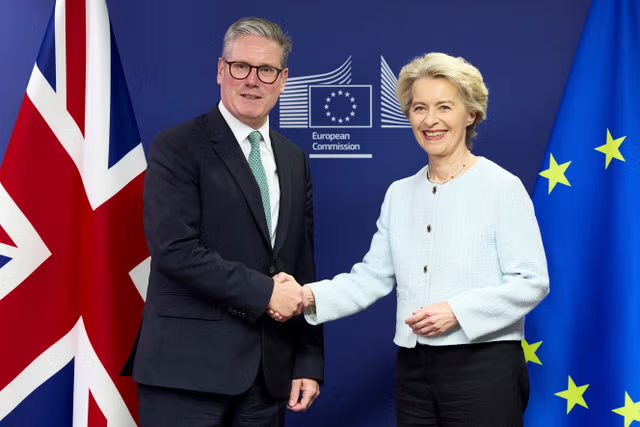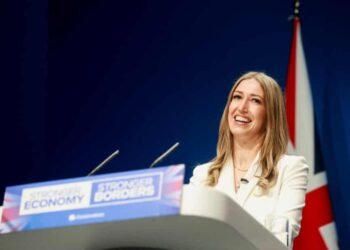The United Kingdom may have an opportunity to join a Europe-wide trading agreement, signaling a potential shift in post-Brexit relations with the European Union.
Maros Sefcovic, the EU’s lead negotiator for Brexit, suggested Britain could join the Pan-Euro-Mediterranean Convention (PEM), a deal enabling tariff-free trade across Europe, parts of North Africa, and the Levant.
Speaking at the World Economic Forum in Davos, Switzerland, Sefcovic emphasized that the EU remains open to the idea but noted that “the ball is in the UK’s court.” The proposal has garnered support from some business groups, who argue it could stabilize supply chains and reduce red tape.
Despite these potential benefits, the UK government has expressed reluctance. Housing minister Matthew Pennycook stated, “We are not seeking to participate in that particular arrangement.” However, he acknowledged the government’s broader aim of fostering closer ties with Europe in areas such as trade, security, and defense.
The Liberal Democrats sharply criticized this stance, labeling it as “economic negligence.” Party leader Sir Ed Davey said, “It is alarming that the Government is happy to negotiate with China but won’t even look at a better trading arrangement with our closest neighbours in Europe.”
He called for a reevaluation of the UK’s approach, arguing that a customs arrangement could reduce red tape, boost business, and drive economic growth.
While some political leaders, including Labour’s Sir Keir Starmer, have sought to rebuild bridges with Europe, others remain cautious. Starmer’s plan to reset relations with the EU has included meetings with European leaders like Ursula von der Leyen and Emmanuel Macron.
Dr. Mike Galsworthy, chairman of the European Movement UK, urged Starmer to embrace the PEM opportunity. “With growth stalled and exports falling through the floor since we left the EU, Keir Starmer should welcome the offer of joining the PEM customs arrangement with open arms,” he said.

Galsworthy also advocated for rejoining the EU customs union, citing its potential to eliminate trade barriers and restore young people’s rights to travel and work freely across Europe.
Challenges in Food Exports
A lack of a veterinary agreement between the UK and EU has been a significant hurdle for food exporters. Sefcovic suggested that granting UK food products single-market treatment could resolve some issues but would require “dynamic alignment”—adopting and updating rules in tandem with the EU.
The absence of such agreements has complicated efforts to rebuild trade relationships and remains a sticking point in ongoing negotiations.
Another contentious issue is a youth mobility scheme that would allow under-30s to work, study, and travel across the EU for up to two years. While European leaders have expressed interest, the UK government remains hesitant, wary of measures that could increase immigration or be perceived as undermining Brexit.
Critics argue that this reluctance undermines opportunities for young people and limits the UK’s cultural and economic engagement with Europe.
Europe’s demands for access to UK fishing waters and adherence to European Court of Justice rulings further complicate the path to a new agreement. These issues remain sensitive, with both sides seeking to balance sovereignty with cooperation.
As the UK navigates these challenges, the question of whether to embrace closer economic ties with Europe looms large. For now, the government’s cautious approach reflects the delicate balance between securing economic growth and maintaining Brexit’s political legacy.
READ ALSO: Asah Asante Criticizes Ministry of Aquaculture, Calls for Structural Reforms






















